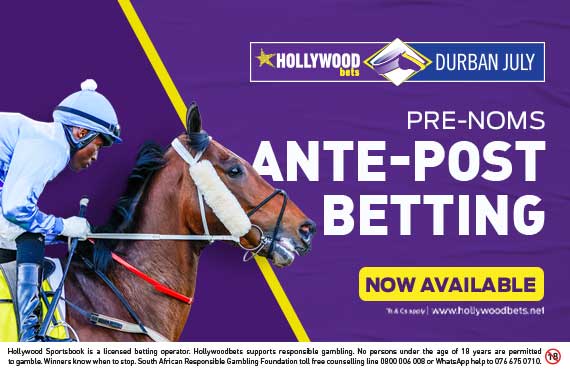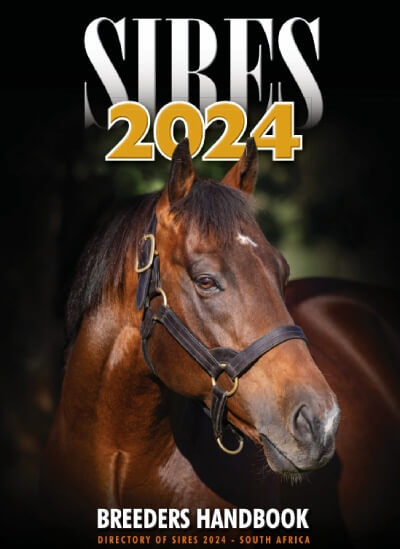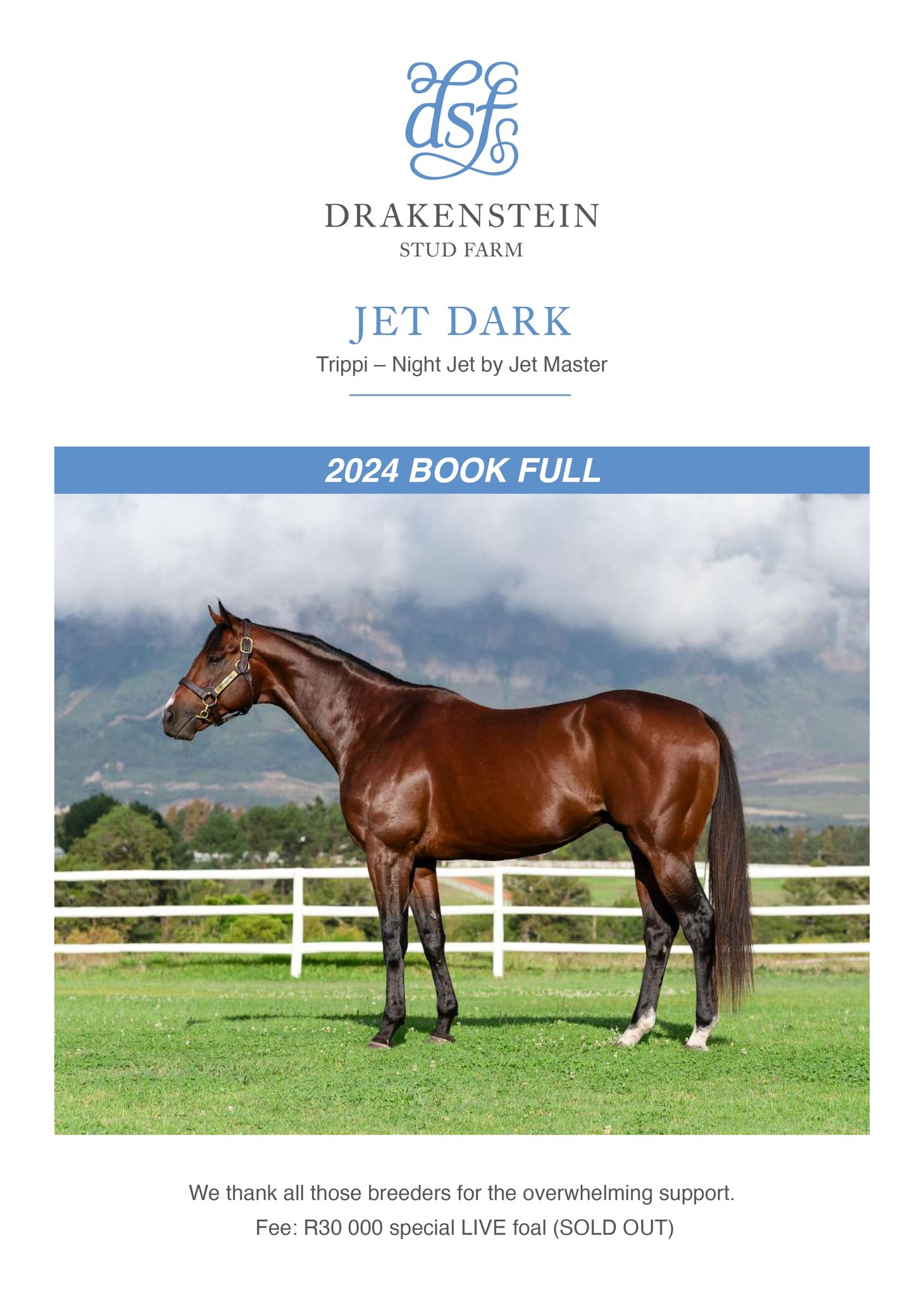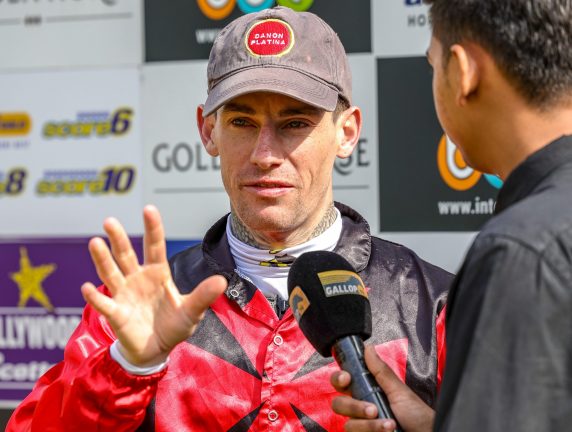James Maree, at 78 years of age, is as passionate about his Thoroughbred Racing Development Centre as he was when he launched the project nearly 25 years ago with the support of Mary Slack and the Thoroughbred Racing Trust.
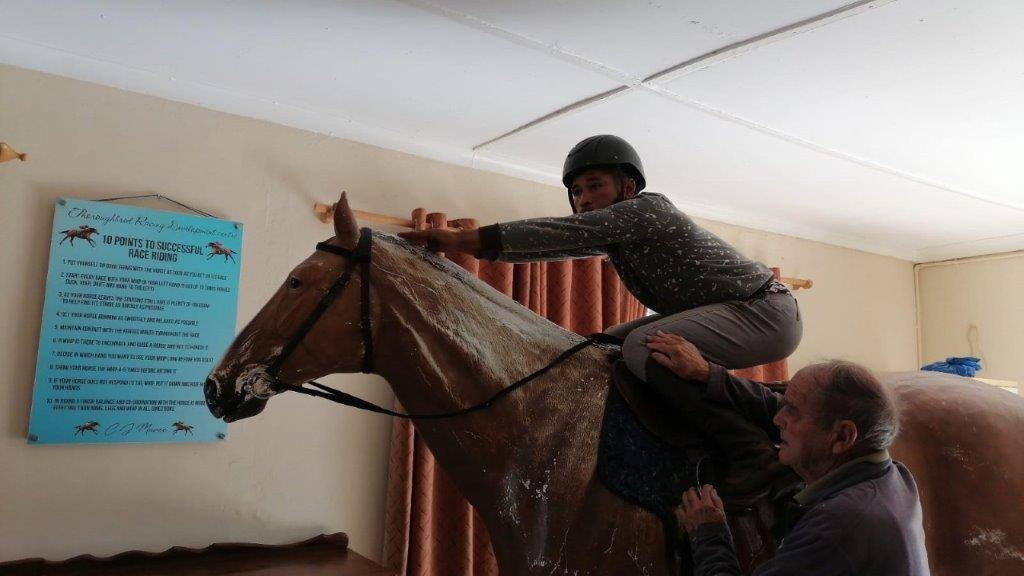
James Maree with an aspirant work rider, and the ‘Plastic Horse’ (Pic – 4Racing)
Charl Pretorius writes on his Off The Record column that Maree’s farm at Eikenhof in the countryside to the south of Johannesburg remains the home of Gauteng’s Programme for Work Riders, now funded and administered under the 4Racing umbrella. Its graduates are in demand around the world, and the centre is poised for more success in its teaching of riding skills and its commitment to the process of transformation.
Leading work riders including Joe Gwingwizha, Daniel Cooper, Daniel Baase and Charles Ndlovu, have all accepted lucrative work riding contracts in places like Japan, China, Malaysia and the UK.
Maree reckons the demand will grow stronger.
He said: “When you listen to trainers around the world, one of their main concerns is the lack of qualified work riders. They have a preference for South Africans because of their riding abilities and horsemanship. That our riders can double as grooms is an additional advantage. Trainers also feel that the South Africans have a better work ethic, hence their popularity. Our televised races reach a good global audience, so the work riders are being watched all the time. This is wonderful exposure.”
He added: “You can’t blame the top work riders for leaving South Africa. They earn good salaries, live and work in good conditions. They’re improving their own lives and the lives of their families at home, because they send money back to South Africa. Our task is to keep training riders to high standards, so as to keep our local trainers happy and supply in the demand that now exists abroad.”
Maree, assisted by former jockeys Marthinus Mienie and Piet Nhlapo, manages an intake of up to 40 grooms, three times a year. They complete a basic course in horsemanship, a basic course in riding and an advanced course in riding. They’ve never had the use of a mechanical horse, the so-called racehorse simulator.
They use a big, sturdy plastic model which Maree says is more than adequate for their needs. “When the riders are ready, we put them on real horses. We make a video of each ride and then we study the videos together so we can correct faults.”
“The system works perfectly well. We teach two or three times a week, between 11am 2pm, which is the grooms’ leisure time after work at their respective centres.
We alternate between groups of riders from Randjesfontein, Turffontein and the Vaal. Piet drives our combi and collects the grooms at the various centres. Others travel to us at their own cost, but our courses are free of charge.”
Each graduate gets a certificate on completion of a three-month learning period and the best students receive further training with the eventual goal of riding races. Of those who don’t make the grade, a handful always return to try again. “One has to admire the courage of some of these grooms. There are some with natural talent, but simply no motivation or dedication. They fall by the wayside. Then there are others who don’t have much talent, but they try their hearts out and improve their skills. We get involved on the mentoring side now and then, to help them along.”
Maree, who was SA’s champion jockey in the 1965/66 season and won the Durban July, the Cape Met and the SA Derby multiple times, took up training in 1980 and developed his farm into a fully equipped training centre complete with tracks, stables and paddocks. Some 20 years later he started the Work Rider programme with the help of Mary Slack and the Racing Trust.
“At the time horse prices were going up dramatically and I felt we needed to improve the skills of those who ride them every morning. They were battling as they didn’t know what they were doing. Something needed to be done to help grooms and horses.”
The programme was streamlined over time, emphasizing the importance of hold, balance and the correct seat. Respect for the thoroughbred, the correct approach towards a horse and personal conduct around horses, owners and trainers are the principles taught as party of the theory instruction.
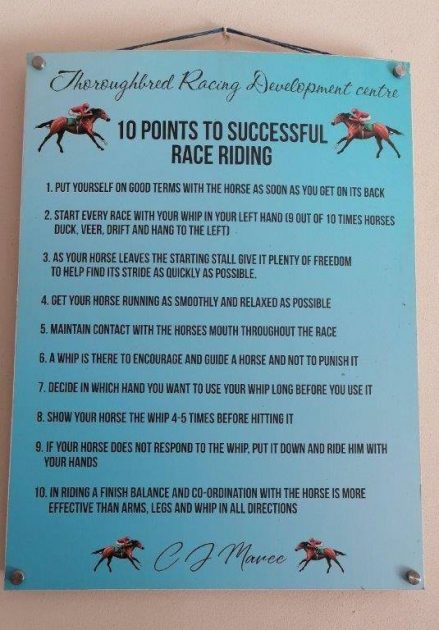
James Maree’s 10 Points (Pic – 4Racing)
Maree’s “10 Points For Successful Race Riding” places emphasis on the correct use of the whip.
He said: “In today’s times it is clear that people dislike the whip and I think eventually its current use will be phased out so that jockeys will only be allowed to tap their mounts on the neck. There won’t be any whipping of horses behind the saddle.”
“Despite our efforts we still see work riders using the whip too heavily. Some are desperate, they need to earn money and will try anything to get into the first four. But we work on that all the time. They need to be patient as race riders, focusing on judging the pace instead of punishing their mounts with the whip.”
The Work Riders Challenge, introduced in 2008, brought a competitive edge to the work riders contests.
It has produced winning riders of quality including Patrick Matshokotsa, Abram Makhubo, Sam Mosia, Joe Gwingwizha and more recently Anathi Feni and Maree said: “Work riders earn the same stake purse percentages as qualified jockeys. Some get carried away when they ride a spate of winners and they can go off the rails, so we have to monitor that and assist where we can to keep them conscientious.”
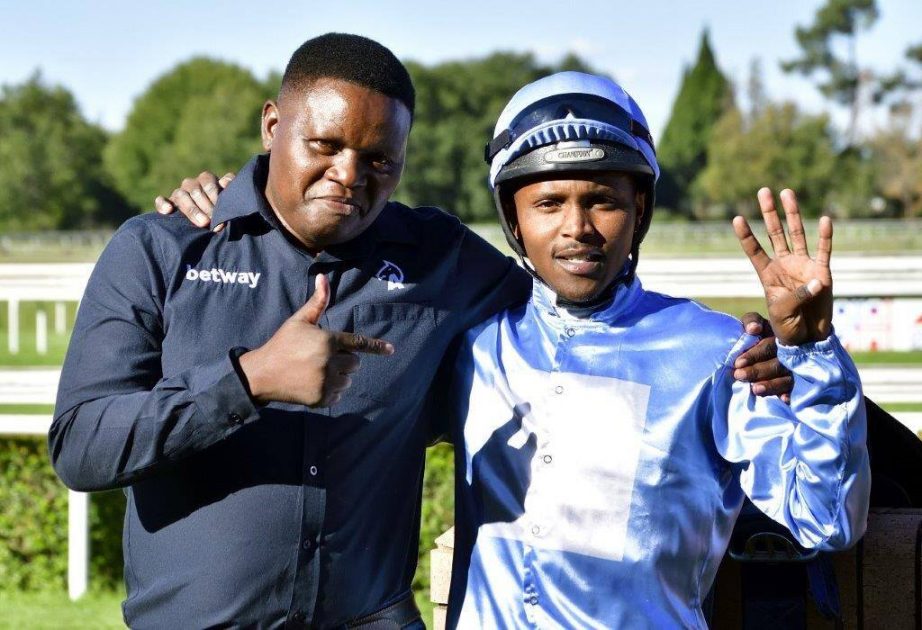
Alson Ndzilana celebrates Anathi Feni’s 4 wins on the Vaal card (Pic – 4Racing)
Most punters enjoy betting on work riders races. Tote turnovers and bookmakers turnovers are reportedly a margin down on most work riders race days, but that is probably due to the lower quality of horses that run in these races.
“Remember, however, that these races provide an opportunity for more Maidens and battlers to have a chance of running and earning for their owners,” said Maree.
“I love the work riders, they try their best always and their races are run at a true pace,” said seasoned punter Rob Zackey. “I don’t reduce the size of my bets.”
A former trainer agreed, saying: “I think statistics will show that the ‘good things’ in work riders races win just as often as they do under qualified jockeys. And you don’t necessarily have to enter bad horses for work riders races. If you have a good horse who partners with a good work rider on the gallop track at home, they can win you money on the racetrack. You can line up a good horse with a good work rider and put your money down!”
The development centre has also served as a vehicle for applicants rejected for various reasons by the South African Jockeys Academy, to hone their skills and try again.
Top jockeys including Lyle Hewitson, Calvin Habib, Diego De Gouveia and Serino Moodley were all initially turned away by the Academy. Maree said: “They were all personally driven and dedicated lads who came to our school so that they could learn to ride. After that, they were accepted by SAJA, became qualified apprentices and earned an income of which a proportion was returned to the Academy, who are sorely in need of funds.”
“Trent Mayhew is the most recent example. His application was rejected by SAJA as he was deemed too tall, but he came to us for help, polished his skills and proved that he could be a competitive rider. He re-applied and was successful.”
Bradley Ralph, a trustee of the Horseracing Trust, commented: “The Work Riders School will continue with the support of Mary Slack and Jessica Jell. We are pleased that there was a seamless transition from the Racing Trust and Racehorse Owners Association to 4-Racing where Lunde Bleni has been employed as Head of Transformation. The focus will remain on sustainability and transformative development and progress in Gauteng and Gqeberha.”
- Follow Charl for more: https://news.4racing.com/off-the-record-23


